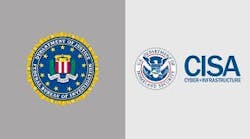WASHINGTON -- Foreign companies contemplating the acquisition of a US entity may find themselves facing tough challenges if congressional efforts to toughen the restrictions on foreign investment under national security laws succeed, says a leading trade lawyer with White & Case.
"Legislation to strengthen the national security review process, if implemented, could have a chilling effect on foreign investment in the United States," said Christopher F. Corr, an international trade lawyer with White & Case in Washington DC, who advises clients on national security controls on investment in US entities. "Would-be foreign acquirers will need to endure the due diligence challenges of heightened regulatory hurdles, significant delays and political uncertainty that could lead analysts to discount their bids and dampen enthusiasm for what initially was a very real opportunity."
Moreover, Corr added, new inward investment barriers could trigger overseas retaliation. "The US is not only the world's largest recipient of foreign direct investment, but is also the world's largest investor," he said. "A perception that the US is less open to foreign investment could instigate reciprocal treatment of US investors abroad."
The recent controversy over CNOOC's bid for Unocal raised widespread concern that the US wasn't doing enough to protect itself from foreign acquisitions of sensitive US assets, and galvanized Congress to tighten foreign investment rules for national security reviews under the Exon-Florio Amendment to the Defense Production Act of 1988. National security reviews currently are conducted by an inter-agency committee known as the Committee for Foreign Investment in the US (CFIUS).
"In a nutshell, foreign companies contemplating the acquisition of a US entity may file a voluntary notification with CFIUS, which then has 30 days either to clear the transaction of any national security concerns, or to initiate a 45-day investigation. If after conducting an investigation CFIUS disapproves of the transaction, it conveys this recommendation to the President, who has 15 days to decide whether to order blockage or divestiture," said Corr.
But following the controversy surrounding CNOCC's bid for Unocal, the General Accountability Office (GAO) released a report that was highly critical of CFIUS' implementation of Exon-Florio. Among the GAO findings were that CFIUS interpreted the definition of what constitutes a threat to "National Security" too narrowly, and should take more time to vet proposed foreign acquisitions.
"If the congressional proposals go forward, they would broaden CFIUS' net to capture investments in infrastructure, economic security and energy needs, and would delay CFIUS' consideration of these investments," said Corr.
Another legislative proposal is to grant Congress the right to veto clearance of any transaction. "This could needlessly politicize the review of foreign acquisitions, and could be misused by competing domestic bidders," Corr added.
"Given that most major business associations oppose the changes, it remains to be seen whether all or some of these proposed changes will be enacted. Congress will begin debating the issue in the near future," said Corr. "Foreign investors in today's climate would do well to monitor the debate closely, and do their homework in advance of making any US acquisitions."

